
China's annual inflation surged to a 10-month high in February while industrial production and retail sales declined in the month, official data released over the weekend showed, sending a mixed signal about the state of the country's economy.
China's consumer price index (CPI) rose 3.2 percent in February from the previous year, according to data released Saturday by the National Bureau of Statistics (NBS), above market expectations of 3.0 percent growth.
Food prices, which have a weighting of nearly one-third in China's CPI, jumped 6 percent in February from a year ago, pushing the CPI up by 1.98 percentage points, the data showed.
"The effect of the Spring Festival holidays is the main driver for the surge in food prices and CPI in February," Yu Qiumei, a senior statistician with the bureau, said in a statement accompanying the data.
"Besides the holiday effect, other factors including a rise in domestic fuel prices (despite a drop in international crude oil prices) and a rebound in the housing market in February also pushed up prices," said Wang Yuwen, a researcher with the Bank of Communications.
"The CPI is entering an early stage of a new upward cycle. If international and domestic liquidity continues to ease and as domestic demand recovers, inflationary pressure will increase in the coming months," Wang said in a research note.
China aims to keep the CPI growth at around 3.5 percent in 2013, lower than the 4 percent target for 2012 but higher than the actual inflation rate of 2.6 percent last year, Premier Wen Jiabao said Tuesday at the opening of the annual session of the National People's Congress.
"CPI inflation is a potential concern, but is surely not a big threat that will force the government to start imminent policy tightening," Lu Ting, a China economist with Bank of America Merrill Lynch, said in a research note.
Meanwhile, industrial production rose by 9.9 percent in the January-February period from a year ago, down from the 10.3 percent year-on-year increase in December, the NBS data showed.
Retail sales grew 12.3 percent year-on-year in the first two months of the year, a sharp decline from the 15.2 percent rise in December and the weakest figures for January and February combined since 2004.
The figures are in sharp contrast with the trade data released Friday, which showed that exports surged 20.6 percent in February year-on-year.
Sales growth for some luxury items for "gift-giving" and revenue at high-end restaurants could be hit by the government's frugality campaign, Lu said. This impact on retail sales could be particularly notable in January and February around the Spring Festival holidays, he noted.
"The pressure for the new leadership comes not from mild economic recovery and rising inflation in the short term but from how to restructure the economy away from over-reliance on investment and trade and achieve sustainable growth in the next five or ten years," Zuo said.


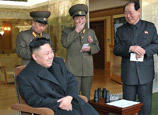
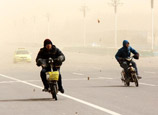


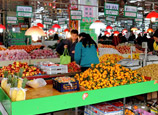
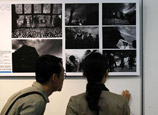

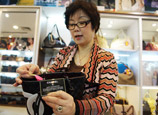






 Over 900 dead pigs found floating in Shanghai river
Over 900 dead pigs found floating in Shanghai river


![]()
